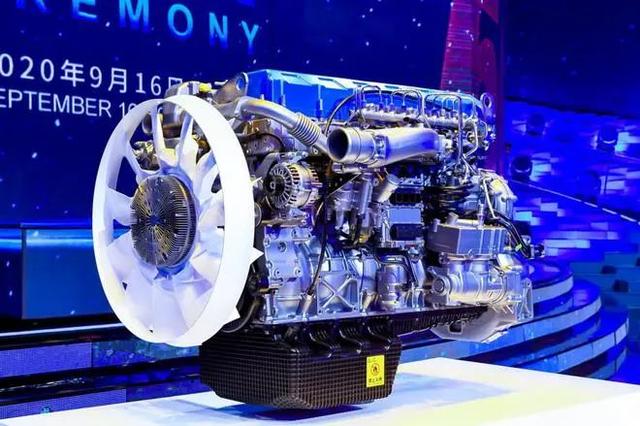what are the ways for modern diesel engines to save energy and reduce emissions?

Increasing the thermal efficiency of the engine can reduce fuel consumption and emissions, but every increase of 0.1% faces huge technical challenges.
On September 16, Certified by China National Internal Combustion Engine Testing Agency-China Automotive Technology and Research Center Co., Ltd. and the international authoritative internal combustion engine testing organization TüV SÜD, the diesel engine with a thermal efficiency of 50.26% developed by Weichai Group was unveiled. The reporter of Science and Technology Daily learned that the engine has achieved five major technological breakthroughs-collaborative combustion technology, coordinated design technology, exhaust energy distribution technology, partitioned lubrication technology, and intelligent control technology. It solves a series of industry problems such as high-efficiency combustion, low heat transfer, high reliability, low friction loss, low pollutant emission, and intelligent control. Weichai Group, the developer of this technology, won the first prize of the 2018 National Science and Technology Progress Award for its heavy-duty commercial vehicle powertrain technology.
"This is an achievement of great significance." said Volkmar Dunner, Chairman and CEO of Bosch Group: "This is a historic breakthrough in the history of diesel engine development, setting a new benchmark for the thermal efficiency of global diesel engines. "
Walter Downing, chief operating officer of the Southwest Research Institute in the United States, also said that achieving a thermal efficiency of 50% requires an extremely large investment in research and development, and planning for commercial production several years in advance. He believes that "this is a feat."
A diesel engine consists of thousands of parts, and the improvement of thermal efficiency is a huge project. Since the world's first diesel engine was launched in 1897, more than 100 years of transformation and upgrading have increased the thermal efficiency of the diesel engine from 26% to 46%. But it encountered a bottleneck when it was upgraded again.
Su Wanhua, an academician of the Chinese Academy of Engineering and an expert in internal combustion engine power engineering, believes that it is very difficult to improve thermal efficiency. Thermal efficiency and emissions are often a contradiction. Improving thermal efficiency on the premise of meeting the national Ⅵ emission standards and regulations is actually a comprehensive improvement of the comprehensive technology of internal combustion engines.
The relevant person in charge of Weichai Group told the reporter of Science and Technology Daily that they conducted special research on the thermal efficiency of diesel engines, through a large number of simulations and bench tests, and after thousands of exploration and analysis of schemes, they made difficult progress with an accumulation of 0.1% each, and finally achieved Historic breakthrough.
The relevant person in charge of Weichai Group told the reporter of Science and Technology Daily that they conducted special research on the thermal efficiency of diesel engines. After a large number of simulations and bench tests, after thousands of exploration and analysis of schemes, they made difficult progress with an accumulation of 0.1% each and finally realized a Historic breakthrough.